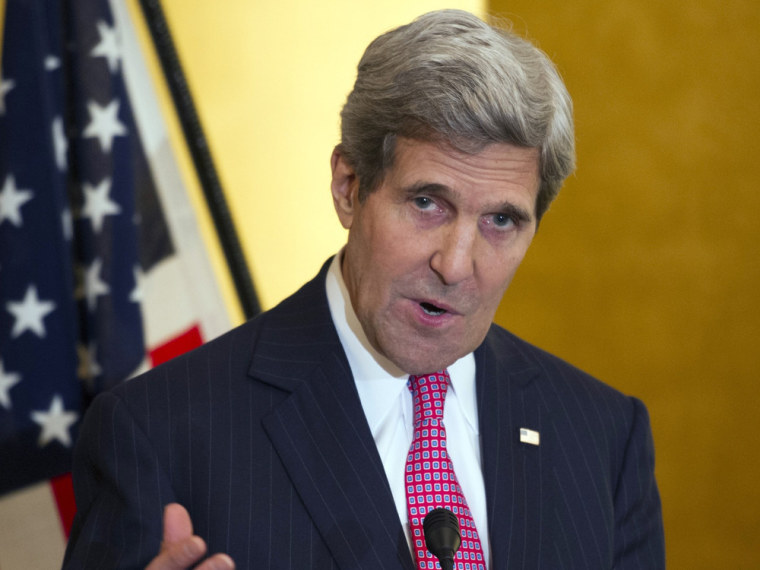WASHINGTON - As the United States and its allies prepare for another round of talks with Iran over its nuclear program, senior U.S. officials say they are “getting close” to a deal on a first step towards a larger deal which would ease the international communities concerns over Iran’s disputed program.
It is thought the deal would include sanctions relief for Tehran, although officials said the figures involved were not as large as previously reported.
“For the first time in nearly a decade, we are getting close to a first step toward a comprehensive agreement that would stop the Iranian nuclear program from advancing - and roll it back in key areas," a senior U.S. official said.
"That would put crucial time on the clock for us to negotiate a comprehensive agreement that addresses all of the international communities concerns about Iran’s nuclear program -- all the while it halts the progress of that program. The agreement would include unprecedented monitoring and verification and therefore make it harder for Iran to do anything in secret.”
The U.S. and the so-called group of P5+1 countries – the U.S., Russia, China, the U.K., France, and Germany - will meet again with Iran on November 20 in Geneva for talks that are expected to continue for two days.
A deal seemed close in the last round of talks there, but the leaders left Geneva without agreement.
“There are alternatives to a diplomatic solution and some would argue for them. In our view, military conflict or Iran’s nuclear program moving forward unchecked are both less effective and costlier. So what we’re trying to do here is precisely avoid both of those outcomes,” said one of the two senior U.S. officials briefing reporters Friday on the progress of the negotiations.
“This is a fundamental discussion we are having in the world or with Capitol Hill about whether we want to do the hard work of diplomacy – or get on a path that might lead us to military conflict and to war. I think the entire world believes that we must do everything we can to try to make diplomacy work.”
Israel’s Prime Minister Benjamin Netanyahu has been an extremely vocal critic of the current negotiations with Iran. He has condemned the proposal, endorsed by Washington and the other five world powers, which would if agreed to by Iran to reduce some sanctions if Iran suspends parts of its nuclear program.
One of the senior U.S. officials acknowledged the divergence between the U.S. and Israel. “We may not see eye to eye on this tactically, but we are absolutely eye-to-eye and shoulder-to-shoulder and one when it comes to ensuring that Iran will not have a nuclear weapon. So the overall objective is one that we are both firmly committed to. We will find our way through this disagreement.”
This week the Obama administration has also been trying to get Congress on board with the diplomacy in Geneva. U.S. Secretary of State John Kerry took to the Hill on Wednesday and urged Congress not to impose more sanctions on Iran for fear they could destabilize talks.
“This is not a sanctions vote…. We are asking for a pause for a very brief period of time to test out whether in fact we can get to a good agreement,” one official said.
New sanctions, the administration argues, would not only harm relations with Iran in the negotiations, but harm relations with the U.S.’s negotiating partners as well.
“At this moment, further sanctions threaten the good faith of that negotiation. Not just with Iran, but with our partners…If we slap on new sanctions right now [countries will] say, ‘ What is the United States doing? … Are they serious?’”
Although seemingly optimistic about the upcoming talks, the official added that further rounds of talks might be necessary to secure a deal. "What is important is that we get in the room and that we take the next effort at this," the official said.
The official added: “There have been wildly exaggerated figures floating around about what our relief program might look like…What we are considering is a small fraction. It is not $15 or $20 or $30 or $40 or $50 billion. It is way south of all of that.”
Related:
